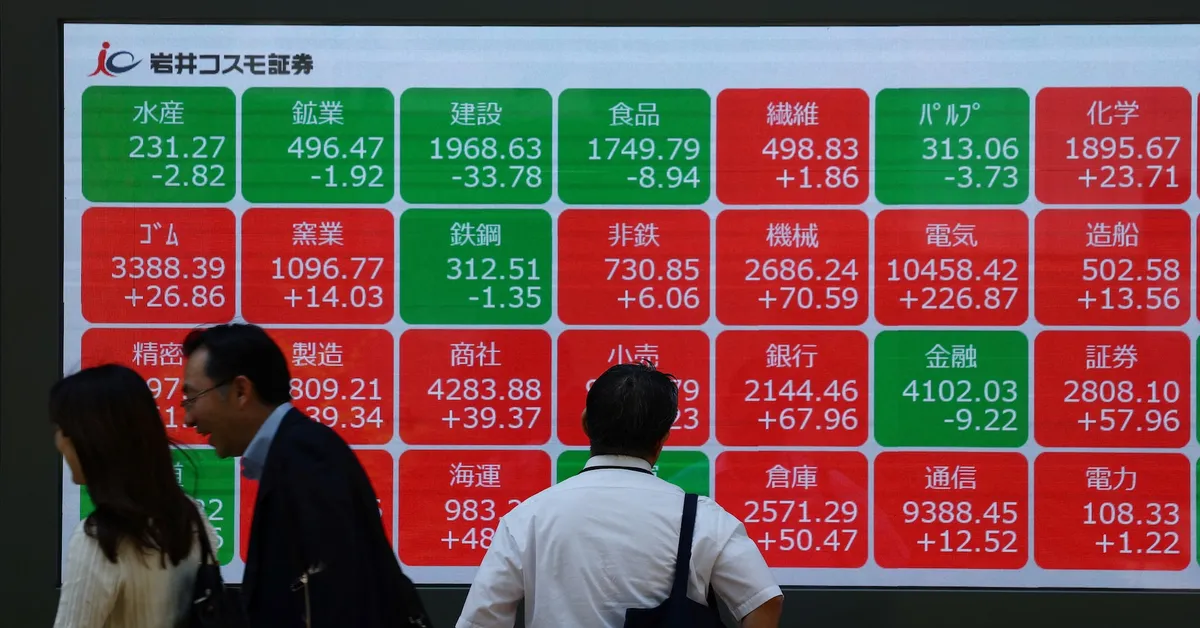
On June 20, 2023, share markets across Asia encountered challenges in finding a clear direction as fears of a potential U.S. attack on Iran loomed over the financial landscape. This uncertainty was exacerbated by the rising oil prices, which are expected to increase for the third consecutive week due to the intensifying Israel-Iran conflict. The situation escalated overnight when Israel targeted nuclear facilities in Iran, prompting Iran to retaliate with missile and drone strikes against Israel. This ongoing air war shows no signs of de-escalation or a clear exit strategy from either side.
The White House announced that President Donald Trump will make a decision within the next two weeks regarding potential U.S. involvement in the Israel-Iran war. This announcement has sparked significant backlash from segments of his MAGA base concerning any military action against Iran. In the face of these challenges, Brent crude oil prices fell by 2% on Friday, settling at $77.22 per barrel. Despite this dip, Brent crude is still on track for a robust weekly gain of 4%, following a remarkable 12% surge the previous week.
Analyst Tony Sycamore from IG noted that the "two-week deadline" is a strategy often employed by Trump in critical decisions, particularly regarding international issues like Russia, Ukraine, and trade tariffs. Historically, these deadlines have frequently expired without any decisive action, raising concerns that a similar outcome may occur given the present complexities of the situation.
As a result of these geopolitical tensions, a cautious atmosphere enveloped the markets, with both Nasdaq futures and S&P 500 futures dipping 0.3% in Asian trading. The U.S. financial markets were closed for the Juneteenth holiday, contributing to the lack of direction for Asian investors.
In the currency markets, the U.S. dollar faced a setback, declining by 0.2% to 145.17 yen. This drop followed the release of data indicating that Japan's core inflation reached a two-year high in May, intensifying pressure on the Bank of Japan to consider resuming interest rate hikes. However, investors appear to have low expectations for a rate increase from the BOJ until December 2023, with just over 50% likelihood priced into the market.
The U.S. bond market, which had also been closed on Thursday, began trading during Asian hours on a subdued note. The yield on the ten-year Treasury bond remained flat at 4.389%, while two-year yields fell by 2 basis points to 3.925%. Additionally, notable developments occurred in Europe as the Swiss National Bank cut rates to zero, leaving the door open for negative rates. Meanwhile, the Bank of England opted to maintain its current policy but acknowledged the necessity for further easing. Surprising many, Norway's central bank made headlines by cutting rates for the first time since 2020.
In commodities, gold prices experienced a slight decline of 0.2%, reaching $3,363 an ounce. However, gold is poised for a weekly loss of 2%, reflecting the ongoing volatility in the market as investors navigate through these uncertain times.
Reporting by Stella Qiu, Editing by Shri Navaratnam.